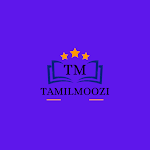Introduction
The Central Government is the supreme
government in our country. The head quarter of the Central Government is at New
Delhi. Articles 52 to 78 in part V of Indian Constitution deals with the Union Executive. The makers of the Indian constitution, by giving due recognition to the vastness and plural character of our nation, have provided a federal arrangement for her
governance. The Central Government consists of three organs, namely,
Union Executive, Legislature and Judiciary.The Union Executive consists
of the President of India, the Vice-President, and the Council of
Ministers headed by the Prime Minister, and the Attorney General of
India. The Legislature is known as the Parliament. It consists of twohouses, namely the Rajya Sabha and the Lok
Sabha. The Union Judiciary consists of the Supreme Court of India.
The President of India
The President is the nominal executive authority. The chiefexecutive of the Indian
union is the President.He is designated as the First citizen of India. He is the
supreme commanderof the armed forces. The President is also the Constitutional head of the Union Executive. According to Article 53 of the constitution, the executive power of theUnion shall be vested in the President which shall be exercised by him directly or through officers subordinate to him in accordance with
Constitution.
Election of the President
The President is elected by an electoral collegein accordance with the system of proportional representation by means of single transferable vote. The Electoral College consists of the elected members of both houses of Parliament
and the elected members of the states and elected members of National Capital Territory of Delhi and Puducherry. Once elected as the President has to take an oath of office before the Chief Justice of India. The President is elected
for a term of five years and can be re-elected.He appoints the Prime Minister and the other members of the Council of Ministers, distributing portfolios to them on the advice of the Prime Minister. He is responsible for making a wide variety of appointments.These include the appointment of Governors of States, the Chief Justice and other Judges of the Supreme Court and high Courts, the
Attorney General, the Comptroller and Auditor General, the Chief Election Commissioner and other Election Commissioners the Chairman
and other Members of the Union Public Service Commission Ambassadors and High Commissioners to other countries.
Legislative Powers
He inaugurates the session of the Parliament by addressing it after the general election and also at the beginning of the first session each year. This address is essentially identical in nature to a Speech from the Throne.The President summons Parliament at least twice in a year He may send messages to either House of the
Parliament with respect to a bill pending in the House. All bills passed by the Parliament become “Laws of Acts” only after getting assent of the President. Money bills cannot be introduced in the Parliament without his approval. President
terminates the sessions of both or any of the Houses of Parliament. He can even dissolve the Lok Sabha before the expiry of the term of the House.He nominates 12 persons who are eminent in literature, science, sports, art and social service
to the Rajya Sabha. He can also nominate two persons belonging to Anglo-Indian
Community to the Lok Sabha, if in his opinion,that community is inadequately represented in the House.
ஆசிரியர் பெருமக்கள் அனைவருக்கும் வணக்கம் இதுவரை நடந்த அரசு பொதுத்தேர்வு வினாத்தாளில் சமூக அறிவியல் வினாதாளில் வந்த ஐந்து மதிப்பெண் வினாக்கள் கீழே pdf வடிவில் கொடுக்கப்பட்டுள்ளது. இதில் குறிப்பிடத் தகுந்த விஷயம் என்னவென்றால் ஒரு வினாத்தாளில் கேட்கப்பட்ட ஐந்து மதிப்பெண் வினாக்கள் அடுத்த வினாதாளில் கேட்கப்படவில்லை.
இதுவரை நடந்த அரசு பொதுத் தேர்வு வினாத்தாளில் வந்த ஐந்து மதிப்பெண் வினாக்கள்|சமூகஅறிவியல்|பத்தாம்வகுப்பு






0 கருத்துகள்